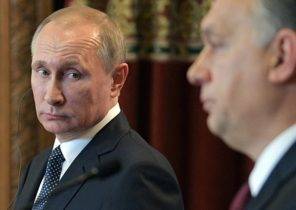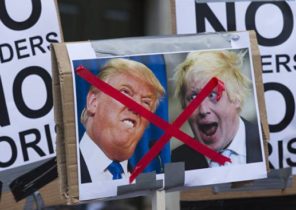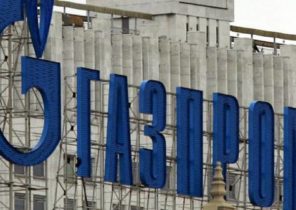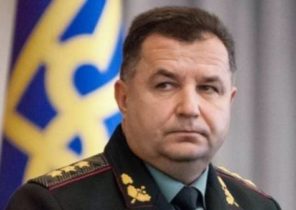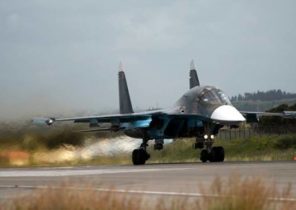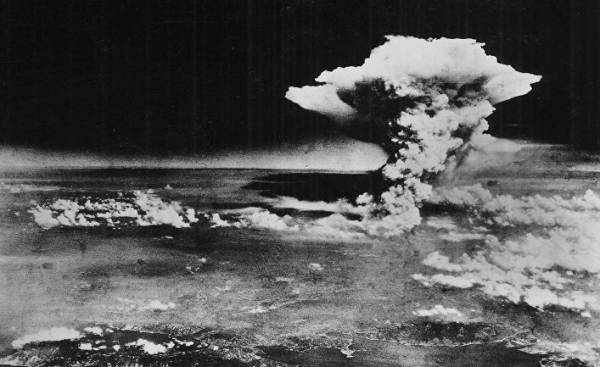
To remember the pain and suffering of the victims of use of nuclear weapons. With these words begins the Treaty for the prohibition of nuclear weapons adopted by the United Nations last month. “Many victims, including my mother and sister were not in vain” — does not hide their excitement adviser to the Japanese Association of victims of atomic and hydrogen bombs, Michizo Iwasa (Iwasa Mikizo, 88).
On this day 72 years ago the United States dropped the atomic bomb on Hiroshima. Under a nuclear mushroom 16-year-old Mr. Iwasa has lost his mother and sister.
Three days after this atomic bomb was dropped on Nagasaki. As a result, in the course of the year died of 210 thousand people. Survivors suffer from complications of radiation sickness. They are called “hibakusha” (people exposed to the explosion).
The voices of the “hibakusha” is heard around the world
“Go faster”. August 6, 1945, 1.2 kilometers from the epicenter in Hiroshima. These words are said, mother Kiyoko, trapped under the debris of the destroyed houses, his son, Michizo who tried to save her. The fire crept closer.
A few days after that, Michizo found the body of his mother in the ruins of the house. It was burnt badly and in no way resembled a human being.
12-year-old sister, whose name was Yoshiko, together with classmates from a women’s school in the morning, attracted to the work on the street. Where she died is still unknown.
“A nuclear explosion does not live and die as a human.” This anger did Mr. IVaS a member of the movement “hibakusha”.
The pain and suffering of many Japanese citizens, soon became the driving force of the world.
Since 2010, the international community began to show interest in the inhumanity of nuclear weapons. Japanese Association of victims of atomic and hydrogen bombs were sent to relevant international forums of people exposed to explosions. What kind of damage a nuclear weapon does to people?
The calls of “hibakusha” who have passed through this bitter experience made an indelible impression on the representatives of the different countries.
In accordance with the Treaty prohibited not only to use nuclear weapons but to store it, and conduct tests. Representatives of various countries participating in the negotiations, with one voice thanked “hibakusha”. Their passionate pleas turned into international law.
What to do in order to push nuclear power
122 countries, representing more than 60% of the UN voted for the adoption of the Treaty. Ratification will start in September. The agreement will be signed by 50 countries.
Many doubt the effectiveness of this agreement. The fact that the nuclear powers and the DPRK has not acceded to the agreement. Of course, they will not to sign and ratify.
Also attention is drawn to actions that are inconsistent with the concept of a “nuclear-free world”.
President trump, who took the presidency this year, intends to increase its nuclear Arsenal. Experts believe that Russia and China strengthen nuclear capability. North Korea openly develops nuclear weapons. She has twice launched Intercontinental ballistic missile (ICBM).
The idea that nuclear weapons are a deterrent that guarantees safety, brings together such countries. However, if the containment is breached and will be launched nuclear missiles, the damage will be devastating. There is also the risk of accidents and terrorist acts. You cannot talk about stable security guarantees.
The key is in the hands of public opinion. The U.S. tends to justify the fact of the atomic bombing. In other nuclear powers, almost nothing is known about the inhumanity of nuclear weapons.
In may last year, President Obama visited the peace Memorial Museum in Hiroshima. Last year, the number of foreigners visiting the Museum has exceeded 360 thousand people, which is a record indicator for all history of existence of the memorial. The horrors of pain and suffering under the nuclear mushroom can not speak to the hearts of the inhabitants of the nuclear powers.
It is necessary to spread awareness of the inhumanity at the national level to ensure that public opinion demanded a change in the policies of countries that depend on nuclear Arsenal. As a country subjected to atomic bombings, Japan is bound to have an impact on these countries.
To move away from nuclear dependence
The government of Japan has boycotted the negotiations for the contract, thereby disappointing “hibakusha”. The Abe administration does not intend to sign the agreement.
The Japanese security is the American nuclear umbrella, which inhibits the attack of other countries. During the February meeting with the trump Prime Minister Abe confirmed his intention to remain under the nuclear umbrella of the United States. Against the backdrop of threats from China and North Korea Japan’s increased dependence on nuclear weapons.
However, the theory of nuclear deterrence could lead to an arms race. In fact, the DPRK stresses that nuclear and missile development is countermeasures against the United States.
The essence of the nuclear umbrella to intimidate: if something happens, we apply a nuclear attack. The government of Japan does not deny the possibility of using US nuclear weapons, however, the repetition of serious pain and suffering is guaranteed. As a country, suffered from atomic bombs, Japan should not let this also from a moral point of view.
The government of Japan should set a goal to join the Treaty to ban nuclear weapons and to get out from under the nuclear umbrella.
Some experts believe that prominent non-nuclear weapons the U.S. is enough to deter North Korea and China. How necessary nuclear weapons, in terms of security guarantees? Japan and the United States are obliged to make efforts to reduce the role of nuclear weapons.
The Obama administration considered the possibility of waiver of pre-emptive strike: do not use nuclear missiles, while the enemy will not strike nuclear attack.
Maybe Japan cost and require more time to discuss this topic at least, and in order to put pressure on the administration trump which are prone to militarism?
Prime Minister Abe will visit Hiroshima and Nagasaki this year. Foreign Minister Taro Kono (Taro Kono), who will accompany him, refers to the issue of nuclear reductions with great enthusiasm. Would like to see both of them being leaders of a country that suffered atomic bombs, showed a determination to carry out pleas of “hibakusha”.
